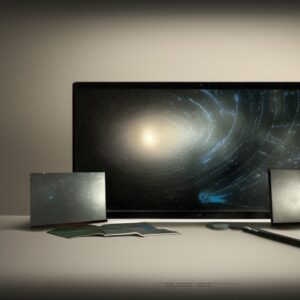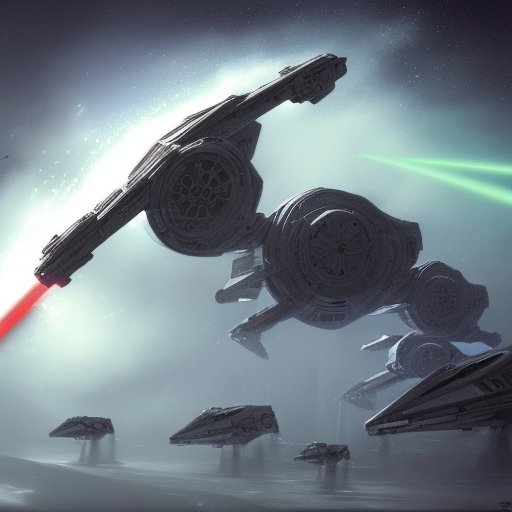
Diplomacy amongst interstellar nations can be tricky. The correct etiquette is highly esteemed and inaccuracies can be dangerous. Enter the Holo-Duplicate Table Etiqui-grade. Pros include quicker and streamlined meetings. However, there are cons as well, such as the loss of personal interactions and misunderstanding. Is it considered respectful or insulting? The future of diplomacy is fast approaching. Will this method replace traditional meetings? Striking a balance between efficiency and cultural sensitivity is crucial for interstellar relations.
I. Introduction
Greetings, fellow space adventurers! Diplomacy amongst interstellar nations isn’t easy – it’s like navigating a whirling asteroid belt with one hand tied behind your back. One small mistake can trigger a cascade of consequences, and before you know it, you’re at war with an alien race that you were trying to make peace with.

That’s why diplomatic etiquette is the cornerstone of interstellar relations. It isn’t just about what you say – it’s about how you say it, and how you act. One misstep can be seen as an insult, and before you know it, you’ve caused an intergalactic incident. That’s why the correct etiquette and protocols are so highly esteemed.
As you know, meetings between interstellar nations are often long, complex, and full of formalities. Every move is watched closely, every word is dissected, and every gesture is interpreted. In the past, human diplomats had to travel to their alien counterparts and participate in these long and tedious meetings in person.
But as technology advanced, a new method emerged – the Holo-Duplicate Table Etiqui-grade. This futuristic invention allows diplomats to participate in meetings remotely, via holographic projection. It brings negotiations to the diplomat’s location, saving time and reducing costs.
However, this new method has its share of controversy. While it brings efficiency, it also removes personal interactions, which can lead to misunderstandings. Moreover, is it considered respectful or insulting? Are you showing your counterparts that you’re too busy to attend in person, or are you demonstrating your technological prowess?
The future of diplomacy is fast approaching. Will traditional meetings become a thing of the past, replaced by Holo-Duplicate Tables? Or will the importance of personal interaction maintain its weight? As diplomatic relations stretch between the stars, striking a balance between efficiency and cultural sensitivity becomes vital for interstellar relations.
II. The Pros of Holo-Duplicate Table Etiqui-grade
Ah, the advantages of Holo-Duplicate Table Etiqui-grade – there are many to consider. Firstly, it streamlines interstellar meetings, eliminating the need for human diplomats to travel to distant planets. The time saved is critical, and resources can be redirected to other concerns.

But that’s not all – interstellar meetings can be long and monotonous, full of procedural formalities that can lead to diplomats zoning out. Holo-Duplicate Tables can eliminate those distractions, allowing diplomats to focus on the business at hand, increasing productivity.
Furthermore, the nature of holographic projections allows for a more interactive experience than if the diplomats were physically present. The Holo-Duplicate Tables allow for the creation of virtual environments, which can be tailored to suit the preferences of the participants, making the meetings more engaging.
However, perhaps the most significant advantage is that Holo-Duplicate Table Etiqui-grade allows for more flexibility in scheduling. With traditional meetings, the availability of key participants and diplomatic envoys could create prolonged delays in negotiations. With holograms, participants can connect from any location at any time, providing much-needed space for urgent decision-making when it is most crucial.
The impact of Holo-Duplicate Table is not just limited to interstellar diplomacy. It has the potential to revolutionize many areas of human interaction across the galaxy, from business meetings to education to entertainment. The future is far-reaching, and the use of this technology could make life more comfortable for all those within an interstellar community, allowing greater time to be spent on other matters.
So, there we have it, folks – streamlined and efficient diplomacy, no wasted time, virtual environments, more flexibility – just a few advantages of Holo-Duplicate Table Etiqui-grade. Next, let’s take a look at some of the potential pitfalls associated with this futuristic invention.
III. The Cons of Holo-Duplicate Table Etiqui-grade
While the Holo-Duplicate Table Etiqui-grade brings efficiency to interstellar diplomacy, it comes with several cons too. The foremost is the loss of personal interactions between diplomats.

When diplomats meet in person, they can read each other’s body language, tone of voice, and other nuances that may indicate a hidden meaning or a change of heart. But with holographic projections, these subtleties can be lost in translation.
Furthermore, the Holo-Duplicate Table Etiqui-grade poses a risk of misunderstandings. Without face-to-face interactions, there is a chance that an innocent comment may be misinterpreted as an insult.
In interstellar negotiations, where cultures are vastly different, misunderstandings can lead to catastrophic results. A poorly framed comment or an unintended gesture can spark a diplomatic crisis or even a war. And even if the misunderstanding can be resolved, it can cause a significant delay in negotiations.
Another disadvantage of the Holo-Duplicate Table Etiqui-grade is the lack of casual conversation. In traditional meetings, diplomats often take breaks to chat with their counterparts in a more relaxed atmosphere. These informal exchanges can build rapport and trust between opposing parties, which can lead to more constructive negotiations.
Additionally, the technology behind the Holo-Duplicate Table Etiqui-grade is not perfect. Technical issues such as audio or video delays, glitches, or even crashes are possible. These issues can disrupt negotiations and bring a sudden end to a meeting.
Finally, some cultures may consider the use of Holo-Duplicate tables as disrespectful. They may see it as a lack of commitment, or view it as a sign of cowardice. In some cultures, the act of breaking bread with someone is sacred, and not being physically present can be offensive.
IV. The Ethics of Holo-Duplicate Table Etiqui-grade
Ah, ethics! That’s a topic that always keeps us on our toes, doesn’t it? When it comes to interstellar diplomacy, the Holo-Duplicate Table Etiqui-grade poses some ethical questions that can be as complex as a black hole.

For one thing, is it respectful or insulting to conduct meetings via holographic projection? One can argue that it shows respect for the alien culture by demonstrating technological advances. Or, is it insulting because you’re not willing to travel to their location and meet them in-person, thereby showing your engagement in their culture?
Another ethical issue arising from this new technology is the virtual presence. Does being there holographically give the same weight as actually being present? Is it right to conduct important negotiations via a digital avatar instead of in person?
And let’s not forget the potential for misunderstandings that can arise. One small gesture or facial expression might have a different meaning in another culture. With the Holo-Duplicate Table Etiqui-grade, there’s a risk that these subtle cues might not be picked up on or misinterpreted, leading to potentially disastrous consequences.
Moreover, we must consider the potential for misuse or hacking of this technology. What if an alien race manages to hack into your Holo-Duplicate projection and distort your given message? That could lead to a catastrophic misunderstanding or worse — an interstellar war!
As we move towards a more technologically advanced future, we must keep in mind the potential ethical complications and be vigilant against using technology too carelessly. Striking a balance between efficiency and sensitivity is paramount. After all, we’re not just negotiating with other cultures – we’re building relationships with them.
V. The Future of Interstellar Diplomacy
Ah, the future of interstellar diplomacy – no one can predict it with certainty. As with all advancements in technology, it brings both joy and apprehension, with proponents and opponents on opposite sides of the ring.

Some believe that Holo-Duplicate Tables are the solution to all diplomatic woes. They argue that it removes the need for expensive travel, saves time, and lets diplomats conduct negotiations from the comfort of their own ships. It also eliminates the possibility of well-intended presents being accidentally contaminated by an interstellar virus, which we all know can be a downer at any diplomatic event.
But others say, “not so fast,” and raise vital concerns about potential misunderstanding, cultural sensitivity, and timing of responses. Is it possible for a hologram to convey the same level of respect and interest as a person present in the room? Can technology compensate for the subtleties of body language?
Furthermore, some of our allies would have to rely on outdated machinery to participate in Holo-Duplicate Table meetings, which could potentially be seen as an insult, or worse, degrade relationships.
As with all new inventions, there are those who will be quick to adopt them and those who will remain attached to the old ways. No matter what happens, we need to understand that there’s no magical tool that can replace the human touch in diplomatic talks. It’s the direct eye contact, the grasp of a hand, and the sincerity in a smile that can truly build trust and respect between two peoples, no matter how different.
Therefore, we must find a balance between the latest technology and old-fashioned human values. Whether we choose to rely on Holo-Duplicate Tables or traditional diplomatic meetings, one thing is certain: the importance of cultural sensitivity and etiquette in interstellar relations will only grow as we spread our wings further and deeper into the vastness of space.
VI. Conclusion
And so, my fellow space cadets, we come to the end of our journey – the question of balance in interstellar diplomacy. The Holo-Duplicate Table Etiqui-grade may offer efficiency and speed, but it also brings potential risks and cultural sensitivity issues.

As the human race ventures out into the unknown reaches of space, we will encounter more and more alien civilizations, each with their own unique customs and beliefs. To build a lasting relationship with them, we must learn to be respectful of those differences.
So, is the Holo-Duplicate Table Etiqui-grade a panacea for interstellar diplomacy, or just another tool in the toolbox? It’s up to us to strike a balance between efficiency and cultural sensitivity, to think not just about what we want to say, but how we want to say it, and how it will be perceived.
We must keep in mind that every culture is different, and every gesture, no matter how well-intentioned, can be misread. We must be aware of the nuances and perceptions that exist in diplomacy, and strive to maintain mutual respect.






